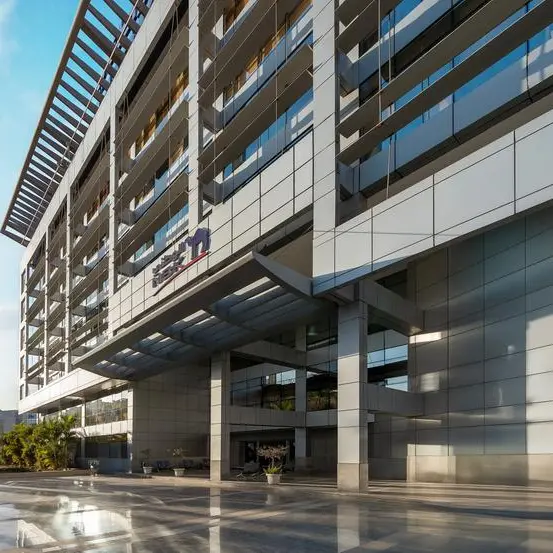Kuwait: Kuwait Financial Centre “Markaz” recently released its Monthly Market Review report for the month of February 2023. Kuwait’s All Share Index witnessed a mild decline in February, posting a monthly loss of 0.5%. Among Boursa Kuwait’s sectoral indices, Insurance and Consumer Discretionary sectors gained the most at 4.8% and 3.8% respectively, while the Oil & Gas sector lost 7.3% for the month. Among Premier Market stocks, HumanSoft Holding Co. and Jazeera Airways gained the most for the month, rising by 8.5% and 7.4% respectively. Alimtiaz Investment Group and Kuwait Investments Co. fell the most for the month at 14.0%% and 13.3% respectively.
Kuwait’s draft budget for 2023-24 estimates a budget deficit of about KD 6.8 billion (excluding investment income and income from government entities) for the period, a sharp rise from the budget deficit of KD 123.9 million estimated for FY 22/23. Oil revenue is projected lower than the previous budget due to the average oil price projection of USD 70/bbl., which is lower than USD 80/bbl. estimated for FY 22/23. While budget allocation towards energy subsidy and salaries has witnessed a 34.2% and 13.3% y/y increase respectively, capital expenditure has fallen by 15.2%. The current Budget includes non-recurring expenses and accrued entitlements from previous years, such as the payment of accumulated dues to the Ministry of Electricity and Water. Fitch predicts Kuwait’s GDP to grow at 2.7% in 2023, with inflation at 3% in 2023 citing stable oil prices. Moody’s has maintained a stable outlook on Kuwait’s banking sector with a rating of A1, citing robust economic growth, mild inflation, and strong financial performance. Kuwait government has allocated nearly KD 837 million for 110 projects planned in FY 2023-24.
Regionally, GCC Markets were mixed with S&P GCC composite index, falling 4.3% for the month. Saudi Arabia and Qatar equity indices decreased the most, losing 6.4% and 3.3% over the month, primarily driven weaker oil prices. Dubai and Abu Dhabi equity indices gained 4.1% and 0.3% respectively for the month on the back of marginal gains posted by few blue-chip companies. First Abu Dhabi Bank and Emaar Properties were the top gainers, posting monthly gains of 3.5% and 0.7% respectively.
UAE’s non-oil GDP is expected to grow at 4.2% in 2023, according to the Ministry of Financial Affairs. UAE’s PMI for January dropped to 54.1, its lowest since January 2022. Dubai’s PMI expanded in January, though at a slower pace compared to the previous month, on the back of improved consumer demand and employment. Saudi Arabia’s real GDP increased by 8.7% in 2022, driven by oil prices, as reported by Saudi General Authority for Statistics. IMF has revised down its growth forecast for Saudi economy in 2023 to 2.6%, down 1.1% from its earlier estimate due to decrease in oil production in line with OPEC+ agreement. Saudi Arabia’s CPI rose by 3.4% y/y in January, mildly higher than the 3.3% y/y increase in December 2022. Saudi Capital Market Authority’s Chairman has indicated that 23 companies have obtained approval to list on Tadawul. The Exchange also intends to launch depository receipts and single stock options.
Developed markets’ performance was negative during February with MSCI World and S&P 500 indices losing 2.5% and 2.6% respectively. Global markets were weighed by rising inflationary pressures and on prospects that the U.S Fed might take a more hawkish stance in raising rates with the terminal rate reaching a target range of 5.50-5.75%. U.S CPI rose by 6.4% y/y in January, higher than market estimates but the slowest pace of increase since October 2021. The core personal consumption expenditures (PCE) price index increased 0.6% in January, exceeding expectations of a 0.4% increase. U.K’s consumer price growth declined for a third consecutive month in January to 10.1% y/y owing to moderating services and fuel costs. Eurozone inflation eased in January to 8.6% y/y from 9.2% y/y in the previous month, still higher than the initial estimation. MSCI EM index marked a sharp fall of 6.5% during month due to weakness in their currencies, after the US Dollar gained due to concerns over further rate hikes. China’s CPI increased by 2.1% y/y in January. IMF has revised its global growth forecast for 2023 upwards by 20 bps to 2.9%, backed by strong U.S spending and China’s reopening of economy.
Oil prices marked a marginal decline of 0.7% for February 2023, due to signs of a strengthening U.S dollar, anticipations of further interest rate hikes by U.S Fed to combat inflation and build up in U.S oil inventories. OPEC+ has maintained its output policy, without any cuts in oil production. Russia has planned to cut oil exports from its western ports by up to 25% in March, exceeding its announced production cuts of 500,000 barrels per day. IEA expects China to account for half of 2023’s global oil demand growth amidst rising jet fuel demand in the country. According to Goldman Sachs analysts, oil supply shortages are expected to drive prices towards USD 100 per barrel by the end of the year. Gold prices fell 5.2% in February to 1,827.2 $/oz due to the strength in U.S Dollar.
-Ends-
About Kuwait Financial Centre “Markaz”
Established in 1974, Kuwait Financial Centre K.P.S.C “Markaz” is one of the leading asset management and investment banking institutions in the MENA region with total assets under management of over KD 1.154 billion as of 31 December 2022 (USD 3.77 billion). Markaz was listed on the Boursa Kuwait in 1997. Over the years, Markaz has pioneered innovation through the creation of new investment channels. These channels enjoy unique characteristics, and helped Markaz widen investors’ horizons. Examples include Mumtaz (the first domestic mutual fund), MREF (the first real estate investment fund) and Forsa Financial Fund (the first and only options market maker in the GCC since 2005), all conceptualized, established and managed by Markaz.
For further information, please contact:
Sondos S. Saad
Media & Communications Department
Kuwait Financial Centre K.P.S.C. "Markaz"
Email: ssaad@markaz.com



















